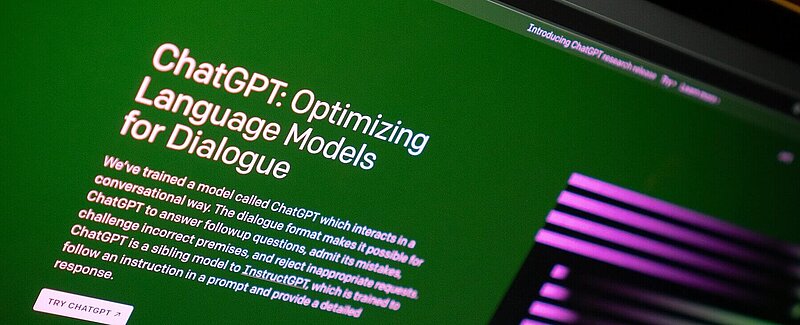
Flexible approach aims to seize opportunities, minimise risks of AI for teaching, research and learning.
The Hertie School has issued guidelines for the use of artificial intelligence (AI) in teaching and research for the first time. The rules take a flexible approach that encourage students and faculty members to explore and take advantage of the benefits of ChatGPT and other AI-based technology while maintaining academic integrity.
When it comes to using AI software in an academic setting, the rules define clear limits. For example, anyone who claims AI-generated texts or translations as their own violates the rules of basic academic integrity and will face the consequences of plagiarism. Students and researchers are also responsible for the content of AI-based work, even if the software-generated content is incorrect.
Cornelia Woll: Seize the opportunities, don't demonise AI
"Artificial intelligence opens up opportunities in the lecture hall and research lab that we never dreamt of – opportunities we should use and not demonise,” says President Cornelia Woll. “An intelligent and transparent use of new tools doesn’t replace one's own head but can save time and improve one's own work."
Dean of Graduate Programmes Thurid Hustedt adds: "We also specifically want to encourage our faculty to incorporate self-learning systems into their teaching. This is the only way we can create transparency and knowledge with the use of new technologies. But it's also clear that passing off a paper written by an AI as your own is plagiarism and will be punished as such."
To guide students along in the appropriate use of AI software, the Hertie School’s leadership encourages faculty members to experiment with the technology as long as it serves course content and objectives, including explicitly outlining rules for AI use for assignments and exams. "In our Master of Data Science for Public Policy programme, for example, AI can be a fundamental part of students’ research, homework and project work,” Hustedt says. “This makes it all the more important to define what is allowed and what isn’t.”
The rules give professors broad leeway in terms of incorporating self-learning systems into their teaching or not.
Read the full AI-usage guidelines for students and faculty for the 2023 spring semester.
